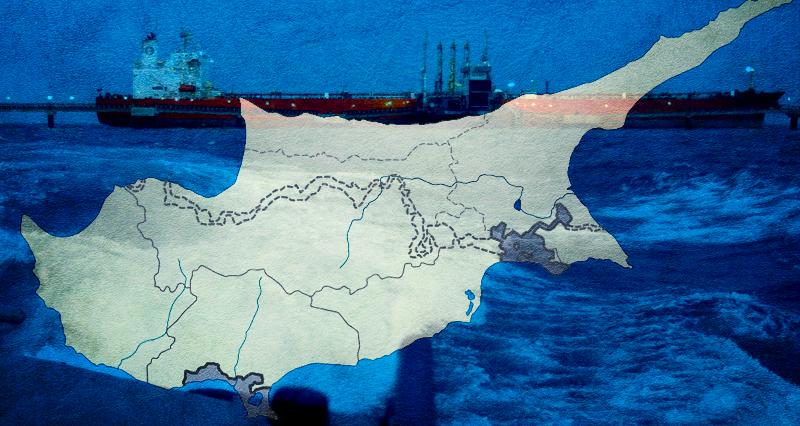The pace of regional and global developments accelerated dramatically and it will gradually become impossible to prevent seemingly unrelated cases from interacting with each other. While no one thought before that Greece would become an effective actor in the Middle East game, in recent weeks the country has suddenly become one of the main figures in politics of world imperialist order.
This behavior of Greece is more than a cross-sectional move and an action ordered or influenced by Washington. It can be considered as a piece of a large and strategic puzzle in Athens’ foreign policy created by more intense interactions with Tel Aviv, Riyadh and Abu Dhabi. In this great puzzle, Greece tries to move as an American infantry force in the region. Traditionally, before it was thought that Greece’s purpose, with this new attitude in the Middle East and Europe, was to create a political bloc to oppose and balance Turkey’s national and territorial interests in the Mediterranean and the Aegean. However, with such behavior on the issue of Iran, it turned out that Greece had defined much more roles for itself than a mere political act against Ankara.
Greece’s enmity with Iran: improper but effective
Without any political tensions between Tehran and Athens, Greece seized an Iranian oil tanker, and then Iran had to balance the move by seizing two Greek ships in the Persian Gulf. The Supreme Leader of Iran, Ayatollah Khamenei, used the phrase “vital enmity” in his speech on the anniversary of Ayatollah Khomeini’s passing away on June 5. Referring to the incident, he blatantly called the Greek seizure of Iranian tankers as a “theft”.
However, the tensions between Iran and Greece did not remain at this level. In recent weeks, Greece has crossed one of Iran’s most vital red lines by letting Israel to simulate the attack model on Iran in Roman Cyprus. Although this Israeli military drill was accompanied by a great deal of scandal and the Israeli operation against Iran was practically unsuccessful even in the maneuver, Greece once again showed that without any hostilities between Tehran and Athens, it can be counted among the enemies of Iran. Moreover, according to military reports released last week, Israeli Air Force drills in the region indicate that Tel Aviv has opened a special account to use the airspace of Greece and Cyprus to attack Iran. This is not an issue that Iran can easily ignore.
Greece seems to intend to create a new attitude of foreign policy based on its non-European diplomacy in order to change traditional regional dynamics by operating in new balances. In the meantime, while the issue of energy and efforts to create a Mediterranean bloc to balance Turkey is of a great importance, Greece’s behavior reflects the fact that Athens regional policy revisions are not limited to Turkey, and that Greece, relying on Israel and the GCC states, is trying to become a play-making actor in the Middle East.
Iran’s response to Greece: The Cyprus case?
Naturally, all these incidents cannot be ignored by Iran. Greece, in response to its persecution, should expect a strong reaction from Iran. Taking into account the activities of foreign policy think tanks in Iran, it shows that Tehran is seriously seeking to review of its regional policies and is trying to start a new season of foreign relations, after the period of intense shadowing over the nuclear issue and the Syrian Crisis. Greece’s motivations at such a stage will undoubtedly change the perceptions of Iranian policymakers to assess Athens’ role in Iran’s policies in the Middle East and the West, and lead Iran to a more strategic partnership with Ankara. As can be seen in some Iranian think tanks, Cyprus is one of the cases that Iran intends to use, either to improve its relations with Ankara and to show its goodwill towards Turkey, or to strike a balance with Greece.
Iran has so far not taken any significant political action on the Cyprus issue and has tried to silence the case, but we now see that some Iranian think tanks are seriously considering the Cyprus case. This attention of Iranian think tanks on the Cyprus issue shows the willingness of the Iranian decision makers to pay attention on the Cyprus issue and move in a constructive direction with Ankara by using the Cyprus card, and we can expect to see Iranian public diplomacy on the issue in the near future.
Conclusion
Tehran’s strategic integration and such a coalition with Ankara was an unexpected result that Greece has faced. Perhaps the coldness of relations regarding the Syrian crisis and the political tensions between the two countries on the other regional issues led Athens to the conclusion that the two countries are not cooperating on Greece’s role. However, considering the past, the relations between Iran and Turkey show that both countries are aware of their strategic interests. Also, it is not possible to disrupt these relations, regardless of the sedition of the Persian Gulf countries or the role of a country like Greece. On the contrary, it will make the relations closer.

















Leave a Reply